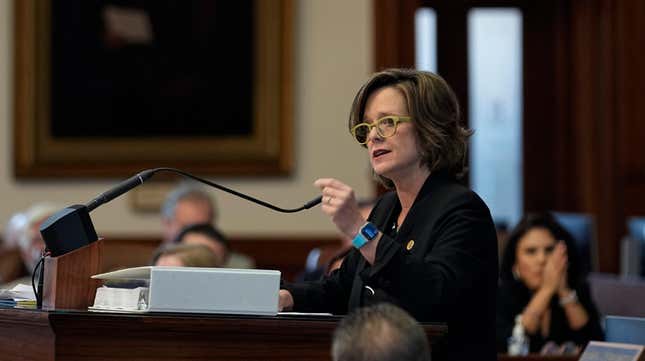Texas Lawmakers Omit the Word ‘Abortion’ From Legislation to Get Gov. Greg Abbott to Sign
"This is what we can accomplish in this moment," Democratic Rep. Ann Johnson said after Abbott signed into law an abortion exception for ectopic pregnancies.
AbortionPolitics

Texas doctors are now allowed to perform “medically necessary” abortions for pregnant patients diagnosed with an ectopic pregnancy or patients whose water breaks too early. The exceptions were quietly signed into law by Gov. Greg Abbott (R), a notoriously conservative leader who also signed the draconian six-week abortion ban into law before Roe v. Wade fell.
Legislators got the bill to Abbott’s desk by omitting the actual word “abortion,” according to a new interview with the bill’s author. “I think what was key about this legislation is that it did not have the term ‘abortion’ in it,” state Rep. Ann Johnson (D) told NPR on Monday. “And because of that, it did not become a political football.”
-

-

-

-

-

-

-

-

-

-

-

-

-

-

-

-

-

-

-

-

-

-

-

-

-

-

-

-

-

-

-

-

-

-

-

-

-

-

-

-








































